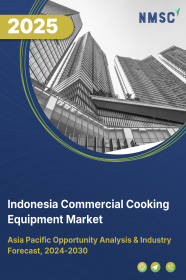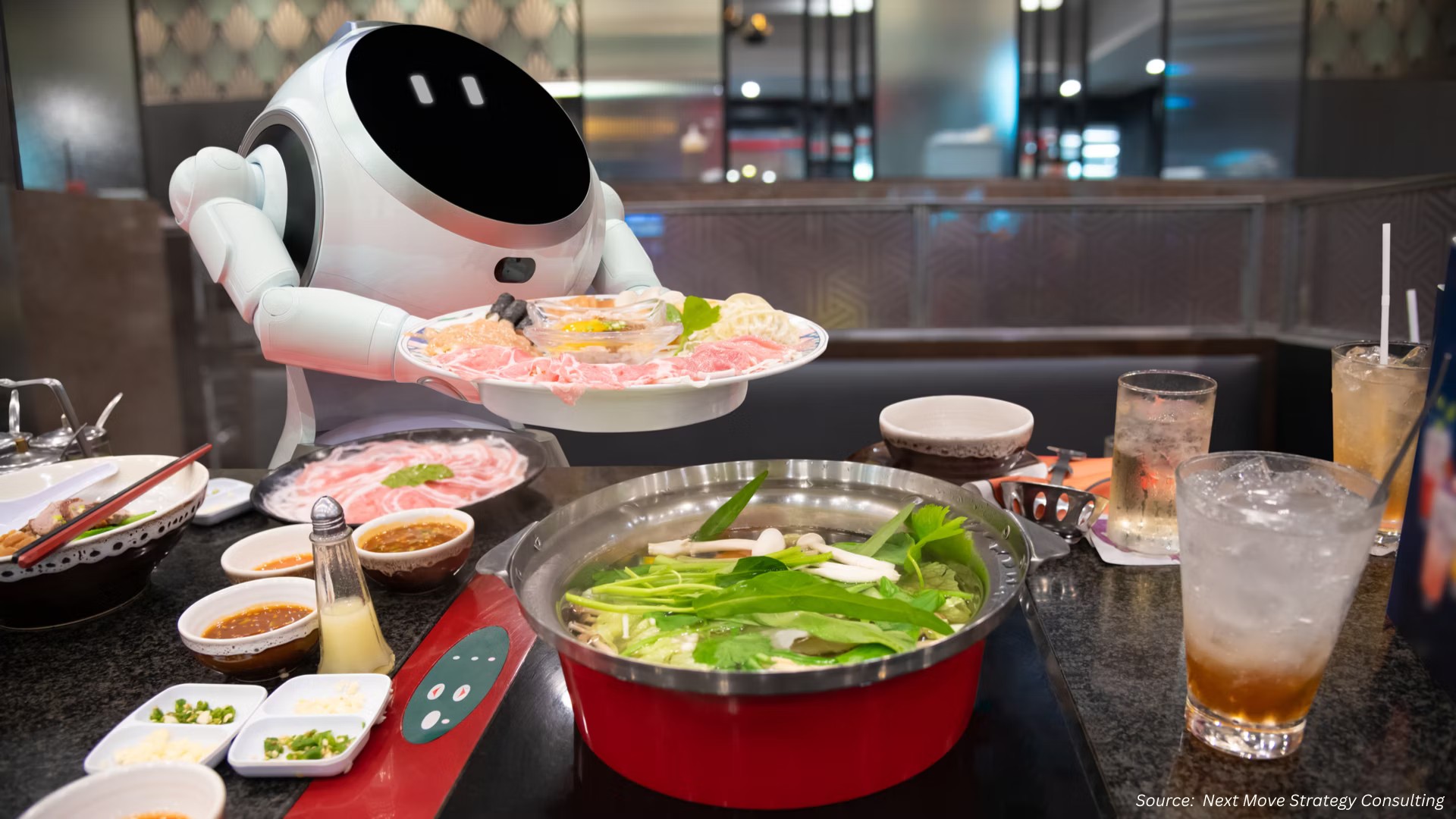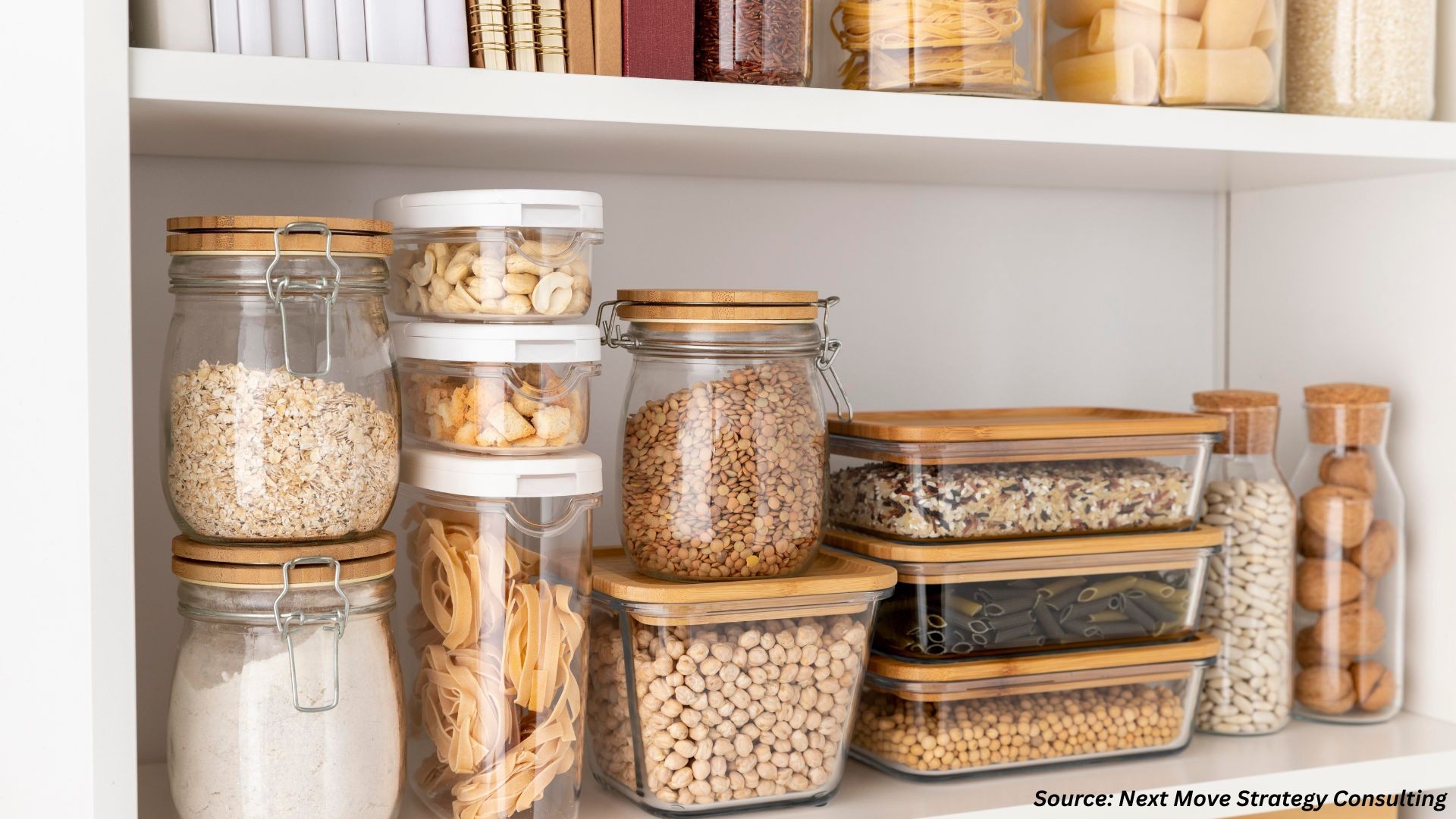
Indonesia Commercial Cooking Equipment Market By Type (Ovens, Ranges and Cooktops, Grills and Broilers, Fryers, Braising Pans and Tilting Skillets, Kettles, Braising Pans and Tilting Skillets, Steamers and Boilers, Cook-chill Systems, Kettles, Mixers, Grinder, Slice, and Others), by End-User (Full-service Restaurants, Quick-service Restaurants, Catering Services, Railway Dining, Resorts & Hotel, Hospitals, and Other End Users) - Opportunity Analysis and Industry Forecast, 2024– 2030.
Industry: Retail and Consumer | Publish Date: 07-Oct-2025 | No of Pages: 169 | No. of Tables: 128 | No. of Figures: 73 | Format: PDF | Report Code : RC2941
Indonesia Commercial Cooking Equipment Market Overview
The Indonesia Commercial Cooking Equipment Market size was valued at USD 141.1 million in 2023, and is predicted to reach USD 251.5 million by 2030, at a CAGR of 8.1% from 2024 to 2030. In terms of volume, the market size was 21 thousand units in 2023, and is projected to reach 46 thousand units by 2030, with a CAGR of 11.4% from 2024 to 2030.
Commercial cooking equipment encompasses a variety of appliances and tools crafted for professional kitchens in restaurants, hotels, and catering businesses. Designed for efficiency and safety, this equipment is built with durable materials to endure continuous use, reducing downtime and ensuring a seamless kitchen workflow.
Modern designs emphasize energy efficiency, helping businesses lower utility costs and environmental impact. Investing in top-tier hospitality cooking equipment is essential for maintaining smooth operations, enhancing competitiveness, and boosting profitability in the food service industry.
Rapid Expansion Of Foodservice Chains And Delivery-centric Kitchens Driving Specialized Equipment Demand
Indonesia’s urban centers are witnessing a surge in quick service restaurant (QSR) outlets, coffee chains, and app-based delivery kitchens. Operators increasingly require compact, high-output appliances such as high-speed ovens, programmable fryers, and modular prep stations designed for standardized menus and fast turnover. Cloud kitchens, operating with smaller footprints, emphasize automation and IoT-enabled monitoring to streamline order processing and reduce labor dependency. The simultaneous growth of dine-in chains and delivery-first formats is accelerating unit sales of efficient, standardized, and scalable cooking solutions across Indonesia.
Hospitality And Tourism Infrastructure Expansion Creating Long-term Equipment Replacement Cycles
With Indonesia’s hospitality sector investing heavily in new resorts, boutique hotels, and high-capacity restaurants, demand for advanced commercial kitchen equipment is on the rise. Established operators are upgrading to multi-functional combi ovens, high-volume steamers, and precision induction systems that can handle peak service loads while enabling diverse menu offerings. The government’s continued push for tourism development in regions beyond Bali—such as Lombok, Labuan Bajo, and Mandalika—is also spurring demand for modern kitchen facilities. This cycle of renovation and expansion is ensuring a consistent pipeline of replacements and new installations across the market.
Rising Import Dependency And Volatility In Input Costs Restricting Affordability
Despite a growing base of local manufacturers, Indonesia’s commercial cooking equipment market still relies heavily on imported machinery and components, particularly for advanced or automated systems. Volatility in global prices of stainless steel, semiconductors, and electronic control units, coupled with currency fluctuations, continues to increase procurement costs. This dependency raises barriers for smaller foodservice operators who face tighter capital budgets, often delaying planned upgrades or opting for lower-cost alternatives that may not meet energy or safety standards.
Acceleration Of Green Kitchens And Smart Energy-efficient Technologies
Indonesia’s foodservice industry is increasingly aligning with sustainable practices, creating significant opportunities for eco-friendly commercial cooking solutions. Demand is rising for induction ranges, regenerative heat recovery systems, low-water steamers, and appliances with AI-powered energy optimization features. Large hotel groups and institutional kitchens are particularly prioritizing ESG-compliant operations to meet global hospitality standards. Suppliers that integrate sustainability with digital connectivity—such as IoT-enabled energy dashboards and predictive maintenance tools—are well-positioned to capture this growing market segment while supporting operators in meeting both regulatory and customer-driven sustainability goals.
Competitive Landscape
The key market players operating in the Indonesia commercial cooking equipment industry include Ali Group Worldwide, Middleby Corporation, Electrolux Professional AB, RATIONAL AG, UNOX S.p.A., Fujimak Corporation, PT Nayati Indonesia, PT Rinnai Indonesia (Rinnai Corp.), Henny Penny Corporation, MKN Maschinenfabrik Kurt Neubauer GmbH & Co. KG, Angelo Po Grandi Cucine S.p.A., Maruzen Co., Ltd., ITW Food Equipment Group (Vulcan brand), Fagor Professional S. Coop. (ONNERA Group), MODENA (PT MODENA Indonesia), and others.
Indonesia Commercial Cooking Equipment Market Key Segments
By Type
-
Ovens
-
Ranges and Cooktops
-
Grills and Broilers
-
Fryers, Braising Pans and Tilting Skillets, Kettles
-
Braising Pans and Tilting Skillets
-
Steamers and Boilers
-
Cook-chill Systems
-
Kettles
-
Mixers, Grinder, Slicer
-
Others
By End-User
-
Full-service Restaurants
-
Quick-service Restaurants
-
Catering Services
-
Railway Dining
-
Resorts & Hotel
-
Hospitals
-
Other End Users
Key Players
-
Ali Group Worldwide
-
Middleby Corporation
-
Electrolux Professional AB
-
RATIONAL AG
-
UNOX S.p.A.
-
Fujimak Corporation
-
PT Nayati Indonesia
-
PT Rinnai Indonesia (Rinnai Corp.)
-
Henny Penny Corporation
-
MKN Maschinenfabrik Kurt Neubauer GmbH & Co. KG
-
Angelo Po Grandi Cucine S.p.A.
-
Maruzen Co., Ltd.
-
ITW Food Equipment Group (Vulcan brand)
-
Fagor Professional S. Coop. (ONNERA Group)
-
MODENA (PT MODENA Indonesia)
REPORT SCOPE AND SEGMENTATION:
|
Parameters |
Details |
|
Market Size in 2023 |
USD 141.1 Million |
|
Revenue Forecast in 2030 |
USD 251.5 Million |
|
Growth Rate |
CAGR of 8.1% from 2024 to 2030 |
|
Market Volume in 2023 |
21 thousand Units |
|
Market Forecast in 2030 |
46 thousand Units |
|
Volume Growth Rate |
CAGR of 11.4% from 2024 to 2030 |
|
Analysis Period |
2023–2030 |
|
Base Year Considered |
2023 |
|
Forecast Period |
2024–2030 |
|
Market Size Estimation |
Million (USD) |
|
Market Volume Estimation |
Thousand Units |
|
Growth Factors |
|
|
Companies Profiled |
15 |
|
Market Share |
Available for 10 companies |
|
Customization Scope |
|
|
Pricing and Purchase Options |
Avail customized purchase options to meet your exact research needs. |

















 Speak to Our Analyst
Speak to Our Analyst

























